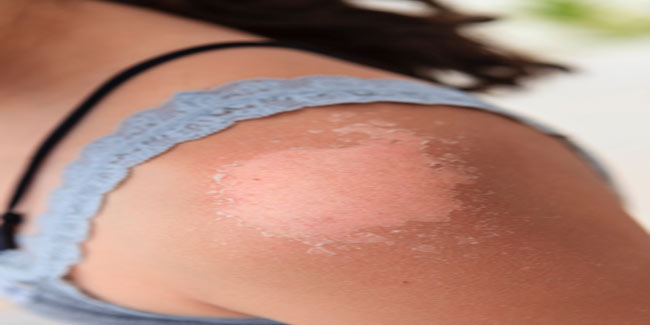
Lichen sclerosus is a long-term skin disorder that affects the skin around the genitals creating patchy thinner skin. During the condition the affected skin develops sore or itchy white spots. It usually affects the anal and genital areas however it can also affect breasts, upper body and arms. Usually the condition doesn’t require any treatment and improves on its own. However, if left untreated it may lead to complications. 
Table of Content:-
Symptoms
Lichen sclerosus usually affects the skin near the genitals or anal areas and may not cause any sign or symptoms. Usually the affected area of the skin develops small shiny and smooth white spots. Other common symptoms of the conditions also include wrinkled patches, itching, easy bruising, and blistering or bleeding.
Causes
Scientists don’t know the exact cause of the disease however some experts believe that the condition is usually caused by an overactive immune system or due to the lack of sex hormones. Skin damages have also been associated to an increased risk for lichen sclerosus at the location.
How common is it?
It is a rare condition but anyone can develop it, however postmenopausal women are considered to be at the highest risk. It has been observed that women above 50 are at a higher risk of developing the condition as compared to general population. In women, the disease mostly affects the vulva. Uncircumcised males among men are most at risk as the disease usually affects the foreskin. The condition is rarest in children
The disease is not contagious and doesn’t spread through intercourse. Doctors can tell the condition by just looking at the symptoms of severe lichen sclerosus. To confirm the observation, doctors usually take a small piece of the skin patch to observe it under microscope. Although the disease usually improves on its own, lichen sclerosus that has symptoms on the genital skin should be treated quickly. If left untreated it may cause discomfort during urination and sex. While surgery is not an option for women to treat symptoms of lichen sclerosus, circumcision is a common treatment for men. However surgery is not recommended for women. Treatment can also include ointments to stop itching. However there is no cure for the condition and despite treatment for the symptoms it may take even years to improve on its own and leave scars on the affected skin.
Image Courtesy : Getty
Read more articles on Lichen Sclerosus
How we keep this article up to date:
We work with experts and keep a close eye on the latest in health and wellness. Whenever there is a new research or helpful information, we update our articles with accurate and useful advice.
Current Version